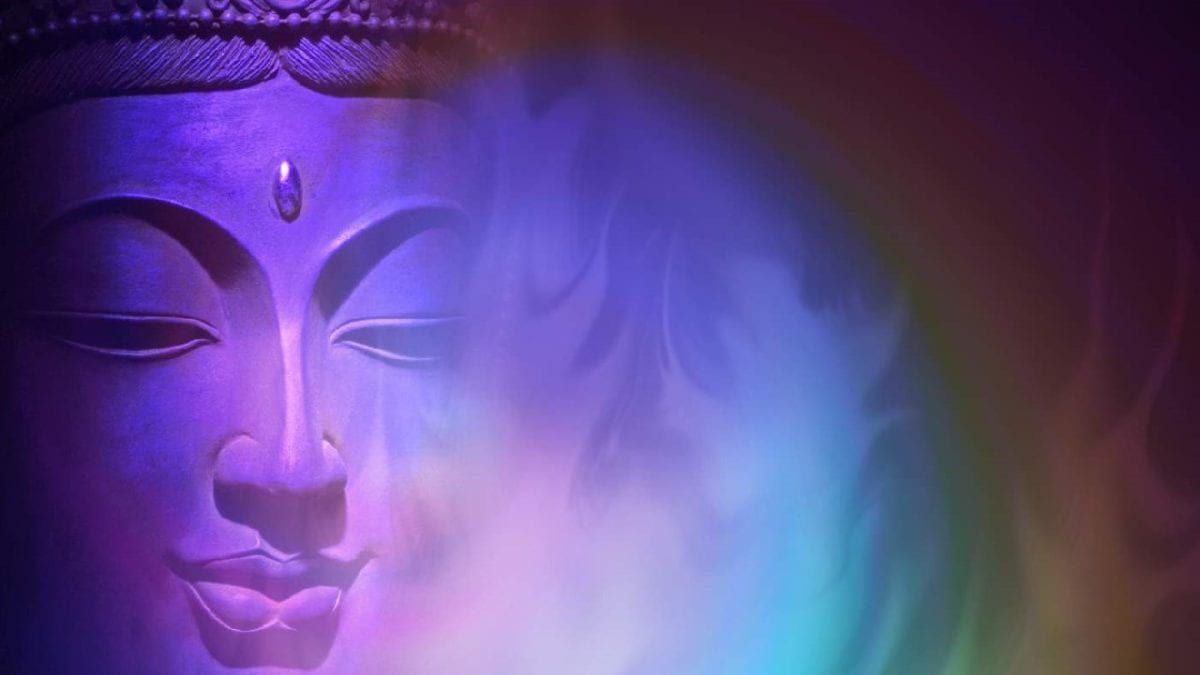Whether one walks the path of Devotion or Meditation (or a combo), everyone cries at some point in this journey. As a form of expression of love for Isht, the pain of longing, on their failures on the path, on their past, as repentance or out of exhaustion after walking a lot. I am not referring to the Karmic reasons of it, I am referring to another reason behind crying.
What I have found is that crying actually helps in cleansing your etheric body, and your complete energy system, don’t we feel light after crying? Our eyes are dull, tears help in clearing that dullness, they remove the clouds in front of our eyes. Moreover, it helps us free ourselves of suppressed emotions which is a major issue I see in many people’s life. (On a side note, the truth is that we are responsible for filling ourselves with emotional garbage out of our ignorant and untamed minds. But if the garbage is there, it has to be removed) Now, someone may not be so emotional, so what should he do? The solution is Tratak.
When we do Tratak, we shed a lot of tears in the process. And that’s exactly the reason Patanjali categorized Tratak as a Shuddhi kriya and not as Dharana (concentration) or Dhyana (meditation). Those tears cleanse you at a deeper level and their direct effect may not be visible at that moment. It cleans a lot of stuff at Agya chakra. Similarly, when devotees cry for their Isht, it works in a similar way. When I experienced intense bouts of crying during 2020-21, it helped me clean myself a lot.
But there’s a pitfall. If your mind somehow gets attached to an idea like, “I am crying because of someone or something that happened,” which is quite natural for the mind, it creates unnecessary emotional baggage. Because really, no one else is responsible-
गलतियाँ पीठ की तरह होती हैं, सिर्फ दूसरों की दिखती हैं, खुद की नहीं – famous saying
But if you can cry without unnecessary thoughts, it’s really much better, it will help you evolve emotionally.
It happened a few months ago, I started trying to observe my crying. I tried to inspect it. I realized that my tears had nothing to do with anyone whom I have met in my life or any incident that may have happened. And as a result, one day I was weeping, without any reason, not blaming anyone, not accumulating any hurt, just crying. Tears were coming and I didn’t stop them, didn’t project it on anyone, no manipulation what happened next? That day crying itself turned into a meditation. I actually enjoyed it. And then it stopped after sometime, just as it had started, without any force, and I was actually grateful after that, it felt so light. Post this experience I slowly rose above the emotional turmoil and now when I look back, I feel -“Oh WOW!” :). (Please note that I don’t mean to say that I never felt bad or wept ever again, I have overcome emotional turmoil, not the restless, self-destructive mind, which is still a work in progress :P)
In the Vigyan Bhairav Tantra, Shiva says :
When a mood against someone or something arises, don’t place it on that person or object, just be aware and watch that mood.
Of what use is knowledge if it is not applied? So I applied the above sentence in my life and got beautiful results.
Crying itself is not a problem but when you attach thoughts to it then it can become a problem, and then it harms you emotionally. So now when you know some better reasons to cry, I hope your tears will now become a stepping stone in your journey. Next time, cry graciously ;D.
Postscript : Here’s a related Zen story and poem –
A monk decides to meditate alone, away from his monastery. He takes his boat out to the middle of the lake, moors it there, closes his eyes and begins his meditation. After a few hours of undisturbed silence, he suddenly feels the bump of another boat colliding with his own. With his eyes still closed, he senses his anger rising, and by the time he opens his eyes, he is ready to scream at the boatman who dared to disturb his meditation. But when he opens his eyes, he sees it’s an empty boat that had probably got untethered and floated to the middle of the lake. At that moment, the monk achieves self-realization, and understands that the anger is within him; it merely needs the bump of an external object to provoke it out of him. From then on, whenever he comes across someone who irritates him or provokes him to anger, he reminds himself, “The other person is merely an empty boat. The anger is within me.”
If a man is crossing a river
And an empty boat collides with his own skiff,
Even though he be a bad-tempered man
He will not become very angry.
But if he sees a man in the boat,
He will shout at him to steer clear.
If the shout is not heard, he will shout again,
And yet again, and begin cursing.
And all because there is somebody in the boat.
Yet if the boat were empty.
He would not be shouting, and not angry.
If you can empty your own boat
Crossing the river of the world,
No one will oppose you,
No one will seek to harm you.
Chuang Tzu, The Empty Boat









Comments & Discussion
29 COMMENTS
Please login to read members' comments and participate in the discussion.